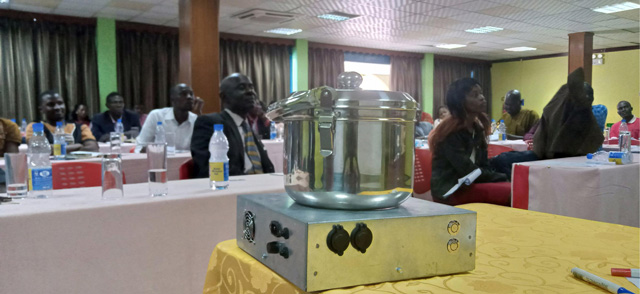
Kampala, Uganda | THE INDEPENDENT | The Catholic Relief Agency CARITAS has intervened in the energy crisis unfolding in Bidi Bidi Refugee Settlement in Yumbe district.
Bidi Bidi is the second-largest settlement in the World, hosting more than 27,000 South Sudan refugees fleeing civil wars in their country. More than 80 per cent of its occupants relies on traditional biomass fuels such as fuelwood and charcoal to cook their meals and heat their homes.
CARITAS Uganda says accessing such biomass is often unsafe and environmentally unsustainable as most of the staple foods distributed to refugees – beans and peas – require a considerable time and fuel to cook. It says that in order to save on firewood, people living in camps often undercook their food, skip meals, sell or barter their food rations for fuelwood.
The Charity has now introduced solar cookstoves to more than 50 households in the settlement and host communities to relieve pressure on natural resources around the settlement.
Laura Christine Okello, the Humanitarian Emergency Coordinator of CARITAS Uganda says the stoves are benefitting more than 3,600 people in Zone II and III in Bidi Bidi Refugee Settlement.
Okello says the stoves utilize solar energy and battery to power insulated metallic cooking pot chamber alongside supplying light for the refugees. She says they partnered with a Danish Energy Organization PESITHO to introduce the technology to the refugees.
Simon La Cour, the Founder of PESITHO says they introduced the efficient cookstoves after reading a news article about massive deforestation around the settlement triggering clashes between refugees and the host communities last year.
Simon La Cour says without having to go to collect fuelwood from the forests, the women can now engage in other income-generating activities such as making arts and crafts. He says the technology fitted with a backup battery can still be used to warm food even when there is no sunshine and is capable of automatically detecting when to use the battery or direct sun energy.
Solar, biogas, electricity and wind energy are listed among the World’s cleanest sources of energy seen as effective in reducing the catastrophe of global warming and mitigating Climate Change. He says the government should invest in the development of renewable sources of energy to avert a catastrophic future.
He says they plan to create a domestic assembly plant in Uganda with CARITAS to serve refugees and host community cooperatives in Northern Uganda using accessories imported from China. According to CARITAS, the technology fitted with a 250 Watts Solar Panel and 512 Watts battery can be used for up to five years.
According to the various studies, Uganda is said to have already lost two-thirds of its forests in the last 20 years to deforestation. The remaining is projected to be lost by 2050 unless the current trend is reversed.
*****
URN
 The Independent Uganda: You get the Truth we Pay the Price
The Independent Uganda: You get the Truth we Pay the Price





